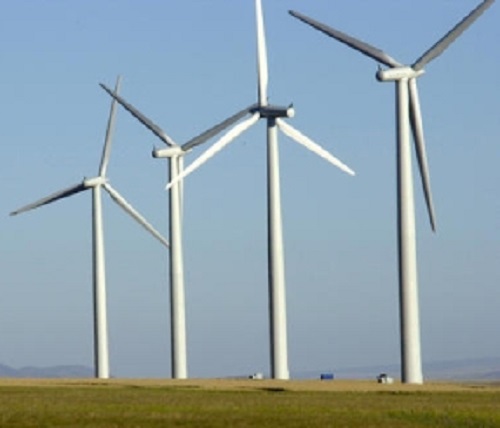Daily Caller
Biden Admin Cements Gas Stove Rule After Insisting It Isn’t Going After Gas Stoves

 From the Daily Caller News Foundation
From the Daily Caller News Foundation
By Nick Pope
The Biden administration locked in a gas stove rule on Monday after insisting that it is not trying to ban gas stoves, rejecting efforts by opposed organizations to nix the rule.
The Department of Energy’s (DOE) efficiency rule for gas stoves, announced in January, will come into effect as expected in January 2028, according to a Monday entry in the Federal Register. The finalized rule is less stringent than a 2023 proposal that was subsequently abandoned, and nuance in the rulemaking process allowed for the agency to walk back parts of the regulation if it received a significant volume of negative public comments on the docket, according to E&E News, but the DOE has gone ahead with its rule over the objections of several Republican state attorneys general and advocacy groups, including the Competitive Enterprise Institute (CEI).
The DOE rolled out the rule as a “direct final rulemaking,” meaning that there was no published proposal for the policy, according to E&E News. The “direct final rulemaking” process also allowed for groups like CEI to leave comments about the rule with a chance of getting the agency to water down the rule.
Liberal City Tries To Tax Buildings Using Gas After Court Smacked Down Its Outright Ban On Gas Stoveshttps://t.co/rxwouySQM0
— Daily Caller (@DailyCaller) August 9, 2024
In its comments, CEI argued that the newer, less aggressive regulation was indeed watered down from the 2023 proposal, but that it nevertheless should be withdrawn because it represents federal overreach and remained a policy that would increase costs for American consumers, according to E&E News and the Federal Register entry. Besides CEI and some Republican attorneys general, the Antonin Scalia Law School Administrative Law Clinic and other groups also commented against the DOE’s rule.
The DOE has asserted that the suggestion the government wants to ban gas stoves is a “myth” and “misinformation.” Notably, Biden administration officials submitted an amicus brief asking a federal court to reverse a decision that nixed Berkeley, California’s 2019 ban on gas hookups in new buildings, a policy that ostensibly would have outlawed the installation of gas stoves in newly-constructed buildings.
“President Biden is committed to using all the tools at the administration’s disposal to lower costs for American families and deliver healthier communities—including energy efficiency measures like the one announced today,” Energy Secretary Jennifer Granholm said of the rulemaking when it was released in late January.
The DOE’s regulation applies to electric cooktops, gas cooktops, stand-alone electric cooktops, stand-alone gas cooktops and ovens. The rule will likely drive up the costs of particular models up front, but the Biden administration asserts that the policy will save Americans money on their bills over time by reducing the volume of energy household stoves use, according to The Washington Post.
“The new standards will also require only a small portion of models to make modest improvements to their energy efficiency to match the level of efficiency already demonstrated by the majority of the market today,” the agency said in its January press release announcing the rule. “For example, approximately 97 percent of gas stove models and 77 percent of smooth electric stove models on the market already meet these standards.”
Nearly 70% of respondents opposed policies that would essentially ban gas stoves, according to a June 2023 Harvard CAPS Harris poll. More than 80% of Republican respondents and 71% of independents were opposed to policies that would induce a gas stove ban, as were 55% of surveyed Democrats.
Beyond stoves, the DOE has also pushed energy efficiency rules for everyday items like water heaters, furnaces and pool pump motors. The Biden administration has also spent hundreds of millions of dollars to assist state and municipal governments in developing building codes intended to “decarbonize” buildings.
The DOE did not respond immediately to a request for comment.
Agriculture
In the USA, Food Trumps Green Energy, Wind And Solar


From the Daily Caller News Foundation
By Bonner Cohen
“We will not approve wind or farmer destroying Solar,” said President Trump in an Aug. 20 post on Truth Social. “The days of stupidity are over in the USA!!!”
Trump’s remarks came six weeks after enactment of his One Big Beautiful Bill terminated tax credits for wind and solar projects by the end of 2027.
The Trump administration has also issued a stop-work order for the Revolution Wind project, an industrial-scale offshore wind project 12 miles off the Rhode Island coast that was 80 percent completed. This was followed by an Aug. 29 announcement by the Department of Transportation that it was cutting around $679 million in federal funding for 12 offshore wind farms in 11 states, calling the projects “wasteful.”
Sending an unmistakable message to investors to avoid risking their capital on no-longer-fashionable green energy, the Department of Agriculture (USDA) is pulling the plug on a slew of funding programs for wind and solar power.
“Our prime farmland should not be wasted and replaced with green new deal subsidized solar panels,” said Agriculture Secretary Brooke Rollins on a visit to Tennessee in late August. “We are no longer allowing businesses to use your taxpayer dollars to fund solar projects on prime American farmland, and we will no longer allow solar panels manufactured by foreign adversaries to be used in our USDA-funded projects.”
The White House is putting the squeeze on an industry that can ill-afford to lose the privileges it has enjoyed for so many years. Acknowledging the hesitancy of investors to fund green-energy projects with the looming phaseout of federal subsidies, James Holmes, CEO of Solx, a solar module manufacturer, told The Washington Post, “We’re seeing some paralysis in decision-making in the developer world right now.” He added, “There’s been a pretty significant hit to our industry, but we’ll get through it.”
That may not be easy. According to SolarInsure, a firm that tracks the commercial performance of the domestic solar industry, over 100 solar companies declared bankruptcy or shut down in 2024—a year before the second Trump administration started turning the screws on the industry.
As wind and solar companies confront an increasingly unfavorable commercial and political climate, green energy is also taking a hit from its global financial support network.
The United Nations-backed Net Zero Banking Alliance (NZBA) “has suspended activities, following the departure of numerous financial institutions from its ranks amid political pressure from the Trump administration,” The Wall Street Journal reported. Established in 2021, the NZBA’s 120 banks in 40 countries were a formidable element in global decarbonization schemes, which included support for wind and solar power. Among the U.S. banks that headed for the exits in the aftermath of Trump’s election were JP Morgan, Citi, and Morgan Stanley. They have been joined more recently by European heavyweights HSBC, Barclays, and UBS.
Wind and solar power require a lot of upfront capital, and investors may be having second thoughts about placing their bets on what looks like a losing horse.
“Wind and solar energy are dilute, intermittent, fragile, surface-intensive, transmission-extensive, and government-dependent,” notes Robert Bradley, founder and CEO of the Institute for Energy Research.
Given these inherent disadvantages of wind and solar power, it’s no surprise that the Department of Agriculture is throttling the flow of taxpayer money to solar projects. The USDA’s mission is to “provide leadership on food, agriculture, food, natural resources, rural development, nutrition, and related issues….” It is not to help prop up an industry whose best days are behind it.
Effective immediately, wind and solar projects will no longer be eligible for USDA Rural Development Business and Industry (B&I) Guaranteed Loan Program. A second USDA energy-related guaranteed loan program, known by the acronym REAP, will henceforth require that wind and solar installations on farms and ranches be “right-sized for their facilities.”
If project applications include ground-mounted solar photovoltaic systems larger than 50 kilowatts or such systems that “cannot document historical energy usage,” they will not be eligible for REAP.
Ending Misallocation Of Resources
“For too long, Washington bureaucrats and foreign adversaries have tried to dictate how we use our land and our resources,” said Republican Rep. Harriot Hagermann of Wyoming. “Taxpayers should never be forced to bankroll green new deal scams that destroy our farmland and undermine our food security.”
Hagermann’s citing of “foreign adversaries” is a clear reference to China, which is by far the world’s leading manufacturer of solar panels, according to the International Energy Agency.
According to a USDA study from 2024, 424,000 acres of rural land were home to wind turbines and solar arrays in 2020. While this – outdated – figure represents less than 0.05 percent of the nearly 900 million acres of farmland in the U.S., the prospect of ever-increasing amounts of farmland being taken out of full-time food production to support part-time energy was enough to persuade USDA that a change of course was in order.
Bonner Russell Cohen, Ph. D., is a senior policy analyst with the Committee for a Constructive Tomorrow (CFACT).
Daily Caller
‘You Have No Idea What You Have Unleashed’: Erika Kirk Addresses Supporters For First Time Since Kirk’s Assassination


From the Daily Caller News Foundation
By Hailey Gomez
Erika Kirk, the widow of Turning Point USA founder Charlie Kirk, addressed supporters Friday evening for the first time since her husband’s assassination, saying that her late husband’s movement will “never surrender.”
Kirk, 31, was shot and killed Wednesday while debating students at Utah Valley University in Orem, Utah. Speaking for the first time since the fatal attack, Erika Kirk thanked those who have supported her and her late husband, including both President Donald Trump and Vice President JD Vance, as well as other officials.
“I honestly have no idea what any of this means. I know that God does, but I don’t. But Charlie, baby, I know you do too. So does our Lord. And our world is filled with evil, but our God, you guys, our God is so good, so incredibly good. And we know that for those who love God, all things work together for good, for those who are called according to his purpose,” Erika said. “Already, I have seen the worldwide outpouring of love for my husband. I’ve heard the testimonies from people my husband inspired to get married, to start families, to seek out a relationship with God. It’s the most important, most important one of all.”
“The evildoers responsible for my husband’s assassination have no idea what they have done. They killed Charlie because he preached a message of patriotism, faith, and of God’s merciful love. They should all know this,” Erika added. “If you thought that my husband’s mission was powerful before, you have no idea. You have no idea what you just have unleashed across this entire country and this world. You have no idea. You have no idea the fire that you have ignited within this wife. The cries of this widow will echo around the world like a battle cry.”
Kirk, who regularly spoke at college campuses to debate students on their political beliefs, made his latest stop in Utah, with videos online showing the campus packed with attendees. About 20 minutes into speaking with students, a shot rang out through the crowd, hitting Kirk.
WATCH:
Security rushed the TPUSA founder to the hospital, where he was initially reported to be in stable condition but ultimately succumbed to his injuries.
After a nearly two-day manhunt, authorities announced Friday that Kirk’s suspected killer 22-year-old Tyler Robinson was officially arrested after a family friend reported Robinson to authorities Thursday evening.
Officials said bullet casings from the rifle that was used contained a series of phrases such as “Hey fascist! Catch!” and “If you read this you are gay LMAO.” A third bullet casing also had the engraving of ““bella ciao,” which matches an Italian song name that became a left-wing anthem during World War II.
Erika Kirk went on to say that she refuses to let the movement of TPUSA “die,” adding she will make sure it becomes “stronger, bolder, louder, and greater than ever.”
“And I love knowing that one of his, one of his mottos was never surrender. So I want to tell you that, that we’ll never surrender. We never will. Ever. Our campus tour this fall will continue. There will be even more tours in the years to come. America Fest here in Phoenix this December will go on. It will be greater than ever. The radio and podcast show that he was so proud of will go on,” Erika said. “And in a world filled with chaos, doubt, and uncertainty, my husband’s voice will remain. And it will ring out louder and more clearly than ever. And his wisdom will endure.”
“My favorite, my favorite too, but my husband’s favorite word in the English language was earn. He would call all of you to be people of action who earn the future America deserves. So to all of the young people who felt inspired by my husband’s faith and hard work, all of you already know what Charlie would want you to do,” Erika said.
Kirk’s wife told supporters to continue their on-campus involvement, attend the upcoming TPUSA events, and “most important of all,” get involved in a “Bible believing church.”
“Our battle is not simply a political one. Above all, it is spiritual. It is spiritual. The spiritual warfare is palpable,” Erika added.
WATCH:
Before ending, Erika Kirk recalled how her daughter asked where Kirk had been, telling her that he’s now “on a work trip with Jesus so he can afford your blueberry budget.” She then thanked supporters once again, adding, “God bless you all, and God bless America.”
Since Kirk’s death, supporters, political figures and friends have spoken out, while some Democrats have openly cheered the loss of the TPUSA founder. Vance shared on X late Wednesday how Kirk had impacted life, recalling their friendship beginning in 2017.
Trump also expressed grief, writing on Truth Social that no one “understood or had the Heart of the Youth in the United States of America better than Charlie.” By Thursday, Trump announced he would award Kirk the Presidential Medal of Freedom posthumously.
“Charlie was a giant of his generation, a champion of liberty and an inspiration to millions and millions of people. Our prayers are with his wonderful wife Erika and his beautiful children. Fantastic people they are,” Trump said. “We miss him greatly. I have no doubt that Charlie’s voice and the courage he put into the hearts of countless people, especially young people, will live on.”
-

 Censorship Industrial Complex23 hours ago
Censorship Industrial Complex23 hours agoFreedom of speech under threat on university campuses in Canada
-

 Alberta18 hours ago
Alberta18 hours agoOttawa’s destructive federal energy policies and Premier Danielle Smith’s three part solution
-

 Business23 hours ago
Business23 hours agoCarney engaging in Orwellian doublethink with federal budget rhetoric
-

 Alberta23 hours ago
Alberta23 hours agoIs Alberta getting ripped off by Ottawa? The numbers say yes
-

 Energy23 hours ago
Energy23 hours agoCanada’s LNG breakthrough must be just the beginning
-

 Business24 hours ago
Business24 hours agoCourt’s ‘Aboriginal title’ ruling further damages B.C.’s investment climate
-

 Business24 hours ago
Business24 hours agoManitoba Must Act Now To Develop Its Northern Ports
-

 Agriculture17 hours ago
Agriculture17 hours agoIn the USA, Food Trumps Green Energy, Wind And Solar



